Arabesque
-
Ships in 2 to 3 weeks
Details
Description
SKU: JL.JLP-8731
By The Harry James Orchestra. Edited by Jeffrey Sultanof. Arranged by Jack Matthias. Ballad. Full score and set of parts. Published by Jazz Lines Publications (JL.JLP-8731).By 1941, James employed such arrangers as Jimmy Mundy, Gray Rains, Alvin (Leroy) Holmes, and Dave Matthews, but his chief arranger for several years was Jack Matthias. Very little is known about this fine arranger/composer. We do know that he played piano for the Jerry Blaine Orchestra in 1937, wrote for James starting in 1940, was president of ASMA (American Society of Music Arrangers) in the late 1950s, and was given arranging credit for the piano/vocal publication of Frank Sinatra's hit 'That's Life' in 1964, something rarely done for sheet music.Harry James' main motivation for additions to his book was simple: if he liked something, he wanted to play it. He later commented about this in the liner notes to one of his last albums, where he said that his band played country songs if they were good, and that he didn't care about categorization. In putting together his book with strings, James balanced pop songs with original pieces and adaptations of classical music. 'Arabesque' was a popular piano piece by then, composed between 1888 and 1891. 'Clair de lune' was also arranged for the James orchestra, as well as 'Golliwogs Cakewalk.' It is believed that Matthias arranged 'Arabesque' and Clair de lune, and Alec Wilder arranged Golliwogs Cakewalk. The instrumentation of this arrangement was for single strings, four reeds, six brass including James and rhythm section, suggesting that the setting was made early in 1941. By the time of the August 4, 1941 recording of Arabesque, James had added another trumpet to the orchestra, but did not alter the orchestration of this piece; perhaps he recorded it as an afterthought, just as Benny Goodman recorded Jimmy Mundy's 'Cherry' at the tail end of a Columbia session (and this was an arrangement Benny didn't even like!). There are no surviving airchecks of 'Arabesque,' and the Columbia recording was never issued. The original score does not seem to exist, and the parts were missing a 3rd trumpet part. To prepare this setting for publication, the 3rd trumpet part was transcribed.
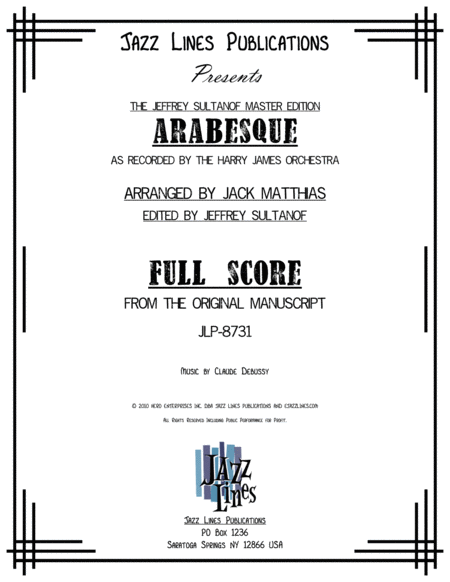
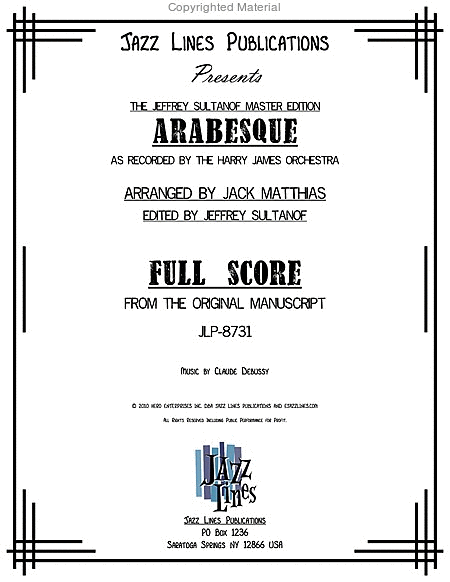
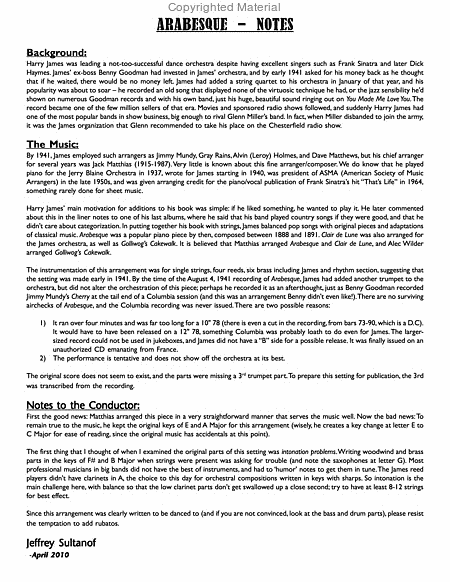
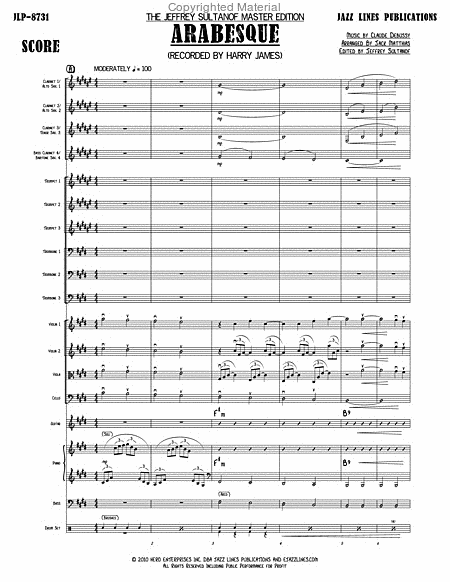
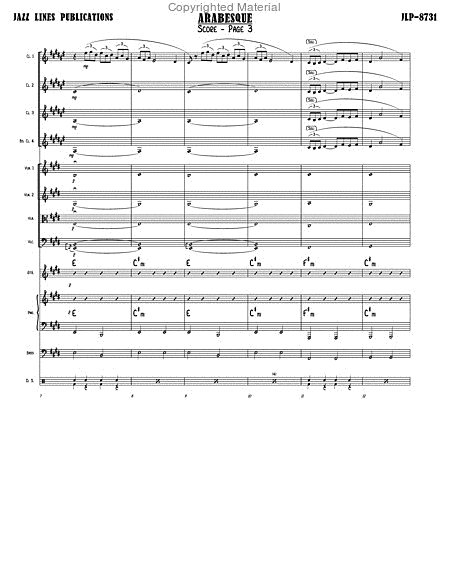
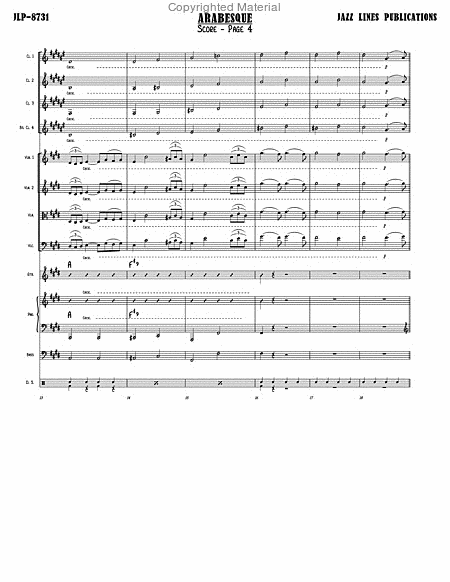
 Share
Share